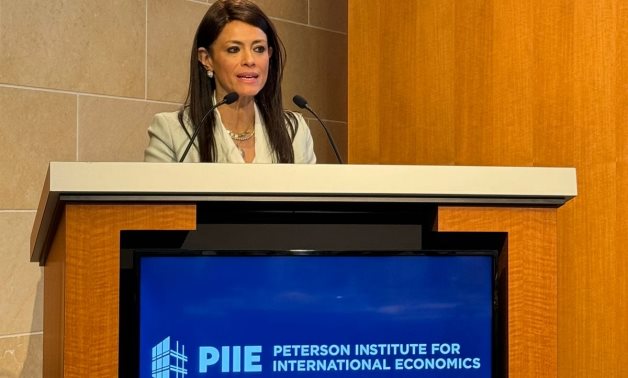Egypt’s Push for Sustainable Economic Reforms: Minister Rania Al-Mashat’s Vision for Structural Change
CAIRO – 18 April 2024: In a significant move toward redefining economic policies for sustained growth, Egypt’s Minister of International Cooperation, Rania Al-Mashat, recently addressed a gathering at the "Rethinking Economic Policy: Steering Structural Change" conference. The event, organized by the Peterson Institute for International Economics (PIIE) in collaboration with the International Monetary Fund (IMF), provided an influential platform for experts to deliberate on the future of global economic stability and resilience.
Redefining Economic Policies
During her presentation, Minister Al-Mashat drew a crucial distinction between immediate stability measures and long-term structural reforms. While the former addresses short-term economic imbalances, the latter lays a robust foundation for enduring economic strength. Structural reforms, Al-Mashat argued, are essential for reducing vulnerability to external shocks and mitigating persistent economic imbalances—an assertion especially pertinent for developing and emerging economies.
Challenges and Future Directions
Minister Al-Mashat underscored the complexities facing developing nations as they strive to maintain structural reforms amid external adversities. These challenges often exacerbate the economic disparity between developed and developing countries. To bridge this gap, Al-Mashat highlighted the vital role of industrial policies in enhancing economic competitiveness. She stressed that for these policies to succeed, they must be supported by complementary financial reforms, particularly those that facilitate the transition to a green and digital economy.
Green Economy and Industrial Policies
The Minister emphasized the urgent need for accelerating structural reforms in the developing world. Industrial policies are pivotal for driving investment in sustainable infrastructure, promoting job creation, fostering innovation, and supporting urbanization. Al-Mashat also reinforced that to maintain Egypt’s economic competitiveness, it is essential to invest in clean technologies, aligning with global trends aiming for a green transition and sustainable value chain creation.
Egypt has set ambitious targets to foster sustainable development. The government plans to increase the share of green projects in public investments to 50 percent by the fiscal year 2024/2025. Furthermore, in partnership with the World Bank Group, Egypt is developing a new industry strategy to stimulate economic growth, driven significantly by private sector participation.
Strategic Collaboration for Sustainable Development
In recent years, Egypt has increasingly collaborated with international organizations to bolster its economic policies. The country’s partnership with the World Bank Group exemplifies this trend, with joint initiatives aimed at achieving sustainable growth targets. These collaborations are integral to Egypt’s broader economic strategy, which seeks to balance immediate stability with long-term, structural changes.
As global economic landscapes continue to evolve, Egypt’s approach, as articulated by Minister Al-Mashat, offers a blueprint for other developing nations. By focusing on green technologies, fostering industrial competitiveness, and ensuring macroeconomic stability, Egypt aims to create a resilient and innovative economy capable of withstanding future challenges.
For more information on Egypt’s Ministry of International Cooperation, visit their official website.
